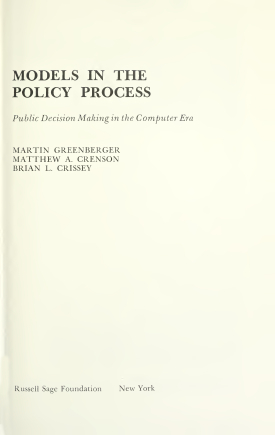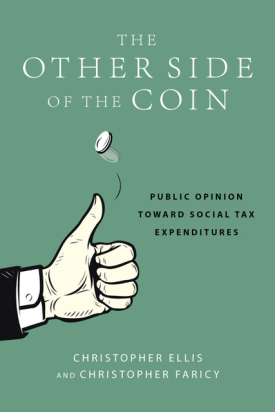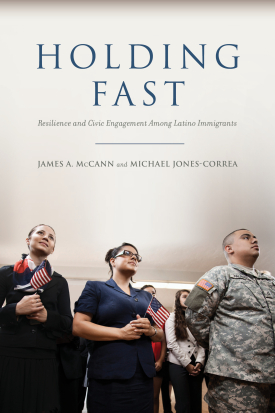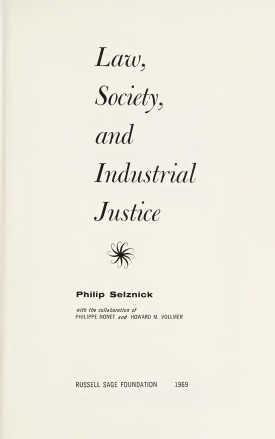Why and when do people act for the common good when they could free-ride instead? Current events spotlight this question. First, due to the Covid-19 pandemic, people have been asked to promote the collective good of public health by wearing masks and maintaining social distance. Why do some people oblige while others object? Second, protesters pursue the collective good of policy change.
The level of partisanship characterizing the U.S. pandemic response is unprecedented in recent politics. Under typical circumstances, public health crises raise the public’s anxiety, leading them to seek out information and to become more trusting in medical experts, but during the COVID-19 crisis, the information provided to the public by experts and the government has precipitated a partisan divide over the seriousness of the threat.
Afro-Cuban exiles and immigrants faced discrimination in housing, schooling, and employment when they arrived in Miami in the 1960s, as well as in the post-civil rights 1970s and beyond.
The COVID-19 crisis forced many states to postpone primary elections and/or hold them mostly by mail. Yet most Americans are not accustomed to voting by mail (VBM). Previous research suggests that barriers to voting by mail already exist for communities of color and immigrants, and data from elections held during the COVID-19 pandemic confirm that people of color return mail ballots at lower rates than whites.

Models in the Policy Process
About This Book
How is the computer modeling of socioeconomic systems being used in government decision making? Is it providing the needed guidance? When it is not, why not? What is its future? How can it be made more useful for policy purposes? To address these questions, the authors investigated a multitude of different types of models being applied or developed in a wide variety of policy areas. They examined models of municipal operations, models of the national economy, and models of the world to detail the tensions between policy modeling and policymaking.
Download
RSF Journal
View Book Series
Sign Up For Our Mailing List
Apply For Funding
About This Book
This is a study of industrial organization, viewed in the light of moral and legal evolution. This book explores a number of themes in the sociology of law, including: the relevance of legal theory to private non-state institutions, the nature of legality and its social foundations, incipient and inchoate law, legal cognition, and the relation between law and politics. These general topics are explored in regard to the extension of the rule of law to modern industrial employment.
Philip Selznick was professor of sociology and law at the University of California, Berkeley.
Download
RSF Journal
View Book Series
Sign Up For Our Mailing List
Apply For Funding

The Other Side of the Coin
About This Book
“Tax breaks are the largest component of the U.S. welfare state, more costly than Social Security and Medicare combined. Christopher Ellis and Christopher Faricy’s pathbreaking analysis illuminates the broad political appeal of these programs in a country wary of ‘big government’ and obsessed with ‘deservingness.’ It also highlights the social cost—in economic inequality and unrelieved poverty—of America’s peculiar reliance on a submerged welfare state.”
—Larry M. Bartels, May Werthan Shayne Chair of Public Policy and Social Science, Vanderbilt University
“The Other Side of the Coin is far and away the most in-depth study of American attitudes toward tax expenditures. The authors and that standard models of public opinion provide an incomplete understanding of these attitudes, demonstrating along the way that tax expenditures could be a fruitful pathway to generating support for redistribution.”
—Nathan J. Kelly, professor, Department of Political Science, University of Tennessee
Despite high levels of inequality and wage stagnation over several decades, the U.S. has done relatively little to address these problems – at least in part due to public opinion, which remains highly influential in determining the size and scope of social welfare programs that provide direct benefits to retirees, unemployed workers or poor families. On the other hand, social tax expenditures – or tax subsidies that help citizens pay for expenses such as health insurance or costs of college, and invest in retirement plans – have been widely and successfully implemented, and they now comprise nearly 40 percent of the spending of the American social welfare state. In The Other Side of the Coin, political scientists Christopher Ellis and Christopher Faricy examine public opinion towards social tax expenditures — the other side of the American social welfare state – and their potential to expand support for such social investment.
Tax expenditures seek to accomplish many of the goals of direct government expenditures, but they distribute money indirectly, through tax refunds or reductions in taxable income, rather than direct payments on goods and services or benefits. They tend to privilege market-based solutions to social problems such as employer-based tax subsidies for purchasing health insurance versus government-provided health insurance.
Drawing on nationally representative surveys and survey experiments, Ellis and Faricy show that social welfare policies designed as tax expenditures, as opposed to direct spending on social welfare programs, are widely popular with the general public. Contrary to previous research suggesting that recipients of these subsidies are often unaware of indirect government aid – sometimes called “the hidden welfare state” – Ellis and Faricy find that citizens are well aware of them and act in their economic self-interest in supporting tax breaks for social welfare purposes. The authors find that many people view the beneficiaries of social tax expenditures to be more deserving of government aid than recipients of direct public social programs, indicating that how government benefits are delivered affects people’s views of recipients’ worthiness. Importantly, tax expenditures are more likely to appeal to citizens with anti-government attitudes, low levels of trust in government, or racial prejudices. As a result, social spending conducted through the tax code is likely to be far more popular than direct government spending on public programs that have the same goals.
The first empirical examination of the broad popularity of tax expenditures, The Other Side of the Coin provides compelling insights into constructing a politically feasible—and potentially bipartisan—way to expand the scope of the American welfare state.
Christopher Ellis is professor of political science at Bucknell University.
Christopher Faricy is associate professor of political science at Syracuse University.
Download
RSF Journal
View Book Series
Sign Up For Our Mailing List
Apply For Funding

Holding Fast
About This Book
Winner of the 2020 Latino Politics Best Book Prize from the Latino Caucus of the American Political Science Association
Click here to view a webinar discussion of the authors discussing research findings from the book.
“We have long puzzled over the net effect of anti-immigrant hostility on the levels of civic and social engagement. Using this era of—by any measure—extreme anti-immigrant policy action by the Trump administration, James A. McCann and Michael Jones-Correa offer us a heartening answer and one consistent with the life narratives of the individuals involved. Challenged, excluded, and harassed, immigrants to the United States have opted for fuller engagement with our political system in an act of civic affirmation that is rooted in the finest traditions of American democracy, and consistent with the characters of individuals who chose to struggle past adversity to secure better futures for themselves and their progeny. These two nodal scholars have, once again, provided documentary evidence of the civic ideals of new Americans.”
—GARY M. SEGURA, professor and dean, Luskin School of Public Affairs, University of California, Los Angeles“
“Holding Fast is a critical read to understand how Latino immigrants have fared—and in fact remained resilient—under the Trump administration. Even in the face of a slew of anti-immigrant actions, James A. McCann and Michael Jones-Correa make it clear that Latino immigrants remain engaged and are using their voices to speak out and create change. As we head toward the presidential election, the book makes clear the promise and peril for both political parties of failing to truly engage the Latino community.”
—PHILIP E. WOLGIN, managing director, Immigration, Center for American Progress
“In recent years, immigrants from Latin America have been the target of vitriolic political discourse and federal policies restricting their participation in American life. But, as James A. McCann and Michael Jones-Correa show, these trends have not led to an exit from U.S. civic life nor a withdrawal from U.S. society. To the contrary, efforts to draw these immigrants outside the American circle have only strengthened their resolve. Based on an impressive study, Holding Fast powerfully underscores the growing importance of Latino immigrants in American politics and civic life. Engaging and persuasively argued, this book is essential reading for anyone interested in how Latino immigrants are actively forging their place in America’s future. If you pick up any book this year, read this one.”
—ROBERTO G. GONZALES, professor of education and director, Immigration Initiative at Harvard (IIH), Harvard University
The fight over immigration reform and immigrants’ rights in the U.S. has been marked by sharp swings in both public sentiment and official enforcement. In 2006, millions of Latino immigrants joined protests for immigration reform. Deferred Action for Childhood Arrivals, a policy granting work permits and protection from deportation to undocumented immigrants who entered the country before age 16, was enacted in 2012, despite a sharp increase in deportations during the Bush and Obama administrations. The 2016 election of Donald J. Trump prompted a surge in anti-immigrant sentiment which threatened DACA and other progressive immigration policies. In Holding Fast, political scientists James McCann and Michael Jones-Correa investigate whether and how these recent shifts have affected political attitudes and civic participation among Latino immigrants.
Holding Fast draws largely from a yearlong survey of Latino immigrants, including both citizens and noncitizens, conducted before and after the 2016 election. The survey gauges immigrants’ attitudes about the direction of the country and the emotional underpinnings of their political involvement. While survey respondents expressed pessimism about the direction of the United States following the 2016 election, there was no evidence of their withdrawal from civic life. Instead, immigrants demonstrated remarkable resilience in their political engagement, and their ties to America remained robust.
McCann and Jones-Correa examine Latino immigrants’ trust in government as well as their economic concerns and fears surrounding possible deportations of family members and friends. They find that Latino immigrants who were concerned about the likelihood of deportation were more likely to express a lack of trust in government. Concerns about personal finances were less salient. Disenchantment with the U.S. government did not differ based on citizenship status, length of stay in America, or residence in immigrant-friendly states. Foreign-born Latinos who are naturalized citizens shared similar sentiments to those with fewer political rights, and immigrants in California, for example, express views similar to those in Texas.
Addressing the potential influence immigrant voters may wield in in the coming election, the authors point to signs that the turnout rate for naturalized Latino immigrant may be higher than that for Latinos born in the United States. The authors further underscore the importance of the parties' platforms and policies, noting the still-tenuous nature of Latino immigrants’ affiliations with the Democratic Party.
Holding Fast outlines the complex political situation in which Latino immigrants find themselves today. Despite well-founded feelings of anger, fear, and skepticism, in general they maintain an abiding faith in the promise of American democracy. This book provides a comprehensive account of Latino immigrants’ political opinions and a nuanced, thoughtful outlook on the future of Latino civic participation. It will be an important contribution to scholarly work on civic engagement and immigrant integration.
JAMES A. MCCANN is professor of political science at Purdue University.
MICHAEL JONES-CORREA is the President’s Distinguished Professor of Political Science at the University of Pennsylvania.
Download
Related Events & Media
RSF Journal
View Book Series
Sign Up For Our Mailing List
Apply For Funding
Collaborative programs that deputize local police to act as immigration (ICE) agents are associated with an increase in the number of Latinx federal convictions. Walker will examine the political development of the collaboration between ICE and local law enforcement agencies and assess the extent to which the implementation of federal immigration policy may be shaped by preemptive practices employed by local police targeting the Latinx community. She will evaluate the impact of this development on the socio-political attitudes of Latinx people.
Pagination
- Previous page
- Page 14
- Next page

